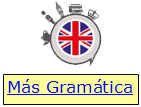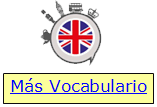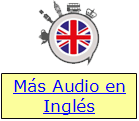|
In this episode we’re going to help you
understand and use vague language. What are you doing later this evening?
– I’ve got to sort out some stuff at home. (What stuff?)
Vague language – not distinct (vago/a)

Sometimes vague language is bad:
How much does this cost? – Around 15 quid, more or less.
Legal contracts and documents, for example, shouldn’t be vague.
When we speak though, we often use vague language.
What did you do yesterday morning?
I took the number 19 bus into the centre of Valencia and bought a pair
of blue shoes and a beige pair of shorts in El Corte Inglés. Then I met
Michelle for coffee in Starbucks at 12.30. (too much boring detail!)
I went into town to get a few things and then I met a friend for coffee.
(more natural)
Vague language
STUFF – There’s so much stuff in my bag. / Clean
all that stuff off the floor. (stuff is uncountable: “A lot of stuff” /
“Lots of stuff.” / “Much stuff” / “Loads of stuff.”
What’s that stuff you use to make your hair soft?
THINGS – Pass me that thing/thingy on the table. / Don’t forget to take
all those things with you when you go.
Are you going to that thing this weekend?
Have you got a lot of stuff to do tonight? (I’ve got a few bits and bobs/bits
and pieces/odds and sods to do)
Vague language for numbers and quantities
Loads of
A few
A couple
Lots of
…ish
More or less
How many emails do you think I got yesterday in the Mansión Inglés and
Inglespodcast email accounts?
I got 117 emails yesterday – I got loads of emails yesterday.
Reza had 5 biscuits with his tea. – Reza had a few biscuits with his
tea.
Vague language to make a list shorter
…..and that kind/sort of thing
….and so on
…..etcetera (etc)
….and things like that
….or something
….or something like that
What do you like to do at weekends? – Sleep in ‘till late. go to the
beach, meet up with friends, listen to podcasts, read, drink beer and
watch TV series. – You know, sleep in drink beer with friends, that kind
of thing. (Don’t give EVERY DETAIL)
What kind of food do you eat when you’re home in Belfast?
Meat, potatoes, stew and things like that.
He’s got a flash new sports car; a Jaguar or BMW or something.
Vague language to be indirect
Do you want to go back to that French restaurant?
Not really, it’s expensive. (direct)
Not really, it’s kind of expensive. / Not really, it’s a bit expensive.
(more indirect)
What do you think of Tom?
He sort of annoys me sometimes. (‘sort of’ makes the criticism softer)
I kind of don’t really feel like going out tonight. (indirect) = I want
to stay in! (direct)
about/around
Let’s meet at 11 to record the podcasts. (direct)
Let’s meet about/around 11 to record the podcasts. (indirect)
Can you get here at 11?
Can you get here around 11? (Using rising intonation also makes this
more indirect, softer and polite – less like an order)
Approximately / roughly
Approximately – I can do this for you for
approximately 250 euros.
Roughly – There’s roughly 16 in the class.
Vague language when you’ve forgotten a name or a word.
Thingy – Pass me that thingy on the table.
Whatsit / What’s it called – Where’s the whatsit that you change
channels with?
You’d better tell whatsit – what’s his name – the guy in charge of the
conference.
Thingamajig – Take out the plastic thingamajig and then put the
batteries in.
What’s it called? / What do you call it? – I need to open this bottle of
wine, but I haven’t got a ….what’s is called?…the thing you open bottles
with…….ahh! a corkscrew!
Whatshisname / whatshername / whatshisface / whatsherface (What is her
face?) – I got an email from er…whatshisname? Er..y’know, that bloke
from Madrid this morning. (not used in written English and NOT used in
person to someone’s face! XHey, you, whatsyourface, can you pass
the wine?X
 *Dispones
de más
PODCAST en inglés publicados en los cuadernos anteriores *Dispones
de más
PODCAST en inglés publicados en los cuadernos anteriores
a los que puedes acceder directamente así como al índice de su
contenido. |



 *Dispones
de más
*Dispones
de más


